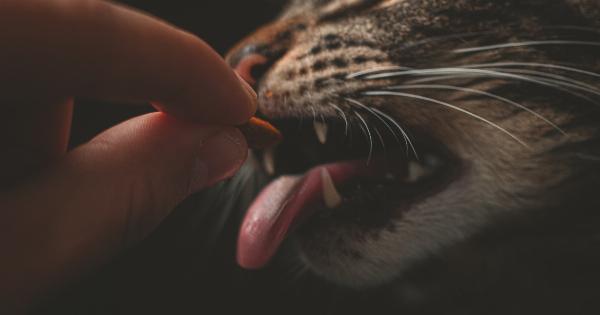Cats are incredible creatures with unique personalities and behaviors which makes them one of the most beloved pets all over the world. Unfortunately, they are prone to various diseases and health conditions, one of which is urolithiasis.
Urolithiasis is a health condition that affects the urinary tract of cats. It is a condition that can be dangerous if left untreated. In this article, we will discuss the risk of urolithiasis in cats, its causes, symptoms, and treatment.
What is Urolithiasis in Cats?
Urolithiasis refers to a condition where cats have an abnormal buildup of urinary calculi, commonly known as bladder stones or crystals in their urinary tract.
These stones or crystals can form in different parts of the urinary tract, including the kidneys, bladder, ureters, and urethra. Cats with this condition usually experience pain and discomfort during urination, and they may also experience a loss of appetite and lethargy.
Causes of Urolithiasis in Cats
There are various causes of urolithiasis in cats, including:.
- Diet: Cats who consume food high in magnesium, calcium, and phosphate are at a higher risk of developing bladder stones or crystals.
- Dehydration: Dehydration increases the concentration of minerals in the urine, which can form crystals and stones, thereby increasing the risk of urolithiasis.
- Infections: Urinary tract infections and other bacterial infections in the urinary tract can lead to the formation of bladder stones or crystals.
- Genetics: Some cats are genetically predisposed to developing urolithiasis.
Symptoms of Urolithiasis in Cats
Cats with urolithiasis may show a variety of symptoms, including:.
- Painful urination
- Frequent urination
- Straining or difficulty in urination
- Blood in urine
- Increased thirst
- Lethargy and loss of appetite
Diagnosis of Urolithiasis in Cats
To diagnose urolithiasis in cats, the veterinarian will perform a physical examination and take a urine sample from the cat. The urine sample will be evaluated to determine the presence of crystals, pus cells or bacteria.
The vet may also carry out x-rays or an ultrasound to confirm the presence of stones in the urinary tract.
Treatment of Urolithiasis in Cats
The treatment of urolithiasis in cats depends on the size of the stones, the location of the stones, and the severity of the symptoms. Treatment methods may include:.
- Medications: The vet may prescribe antibiotics to treat any bacterial infections in the urinary tract. The doctor may also prescribe medication to dissolve the stones or to reduce the inflammation and pain.
- Surgery: If the stones are too large or cannot be dissolved by medication, surgery may be required. This is usually a last resort when all other treatment options have failed.
- Dietary changes: The vet may also recommend changes to the cat’s diet to reduce the risk of recurrence of urolithiasis. This may include feeding the cat with special diets that are lower in magnesium, phosphate, and calcium.
Preventing Urolithiasis in Cats
Preventing urolithiasis in cats is important as it is a painful and potentially life-threatening condition. To prevent the condition from occurring, cat owners can take the following measures:.
- Provide fresh water to ensure your cat is well-hydrated at all times. This helps to dilute the minerals in the urine, which reduces the likelihood of crystal or stone formation.
- Feed your cat a well-balanced diet of high-quality cat food that is low in magnesium, calcium, and phosphate. Avoid giving your cat foods that are high in these minerals as they can increase the risk of urolithiasis.
- Regular veterinary check-ups, especially for cats who are at a higher risk of developing urolithiasis.
Conclusion
Urolithiasis in cats is a serious condition that can cause immense pain and discomfort to your feline friend. As a cat owner, it is essential to be aware of the causes, symptoms, and treatment options available for this condition.
Early detection and treatment can help to alleviate the burden of urolithiasis in cats and improve their overall health and quality of life.






























